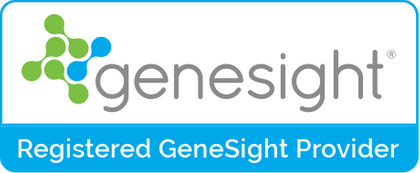Our Services
We'll guide you through personalized plans designed just for you, helping you discover how simple dietary changes can make all the difference.
Psychological Assessments
Diagnostic Assessments
Clinical interviews, either structured or semi-structured, gather detailed information about an individual's psychological history and current functioning to aid in diagnosis using the DSM or other criteria. Psychological testing involves standardized assessments to diagnose mental health conditions like depression, anxiety, and personality disorders. Both methods provide critical insights for creating personalized treatment plans to improve overall functioning. Various diagnostic assessments target specific areas of mental health.
Cognitive and Neuropsychological Assessments
Cognitive and neuropsychological assessments evaluate various mental functions to diagnose and understand conditions like ADHD, traumatic brain injury, and neurodegenerative disorders. IQ testing measures intellectual abilities, identifies learning needs and disabilities, and includes verbal skills, non-verbal reasoning, working memory, and processing speed. Memory and learning assessments evaluate different types of memory and information processing, while executive function testing examines higher-level cognitive processes crucial for goal-directed behavior. These assessments provide insights into strengths, weaknesses, and potential brain damage.
Educational and Developmental Assessments
Educational and developmental assessments identify and address learning and developmental challenges. Learning disability testing diagnoses conditions like dyslexia, dyscalculia, and dysgraphia, informing targeted educational interventions and IEPs. Developmental assessments monitor a child's progress in cognitive, motor, language, and social-emotional domains to identify delays and support timely interventions. Both types of assessments guide educational planning and therapeutic support by considering individual strengths, weaknesses, and cultural factors.
Behavioral Assessments
Behavioral assessments, including direct observations and behavior rating scales, evaluate and address behavioral issues. Observations systematically record behaviors in natural settings to identify triggers and functions, aiding in diagnosing disorders like ADHD, ODD, and CD. Behavior rating scales, completed by parents, teachers, or individuals, use standardized questionnaires to assess behavioral patterns. Both methods aim to understand and address challenging behaviors, informing tailored treatment plans and ongoing support.
Personality Assessments
Personality assessments, including projective tests and self-report inventories, provide insights into an individual's traits, strengths, and areas for growth. Projective tests like the Rorschach Inkblot Test explore unconscious processes through ambiguous stimuli. Self-report inventories, such as the MMPI and MBTI, use standardized questionnaires to assess personality traits and psychopathology. These tools evaluate traits like openness, conscientiousness, extraversion, agreeableness, and neuroticism, offering structured insights for career planning, therapeutic goals, and interpersonal relationships.
Career and Vocational Assessments
Career and vocational assessments, including aptitude tests and interest inventories, guide individuals in making informed career decisions. Aptitude tests evaluate potential in problem-solving, mechanical principles, numerical calculations, and language proficiency rather than current knowledge. Interest inventories explore personal interests to identify suitable career paths and vocational choices, aiding in career counseling and educational planning. These tools support individuals in pinpointing goals and enhancing personal growth.
Health and Disability Assessments
Health and disability assessments are crucial for managing chronic conditions and evaluating impairments. Chronic illness and pain assessments focus on diagnosing, assessing severity, and monitoring progress to tailor treatment plans and improve quality of life. Disability evaluations assess the psychological impact of impairments on daily functioning and work capabilities, aiding in eligibility for benefits and accommodations. These evaluations require comprehensive documentation and knowledge of support services.
Neurodevelopmental Assessments
Neurodevelopmental assessments for Autism Spectrum Disorder (ASD) and Attention-Deficit/Hyperactivity Disorder (ADHD) are vital for diagnosis and understanding. ASD assessments examine developmental history, social communication, behaviors, and adaptive functioning to create individualized intervention plans and educational accommodations. ADHD assessments review symptoms, functional impairments, and co-occurring conditions to develop personalized treatment plans, which may include medication, behavioral therapy, and academic accommodations. Early and comprehensive assessments for both conditions help tailor effective support and interventions.
Therapeutic and Rehabilitation Assessments
Therapeutic and rehabilitation assessments determine an individual's readiness and suitability for various interventions. For therapy, assessments evaluate motivation, awareness of issues, expectations, support networks, and emotional stability while addressing barriers like stigma and lack of support. In rehabilitation, evaluations focus on abilities, limitations, and needs to develop effective physical, occupational, speech, and neuropsychological therapy plans. These assessments help identify functional impairments and monitor progress to ensure optimal recovery and improved daily functioning.




